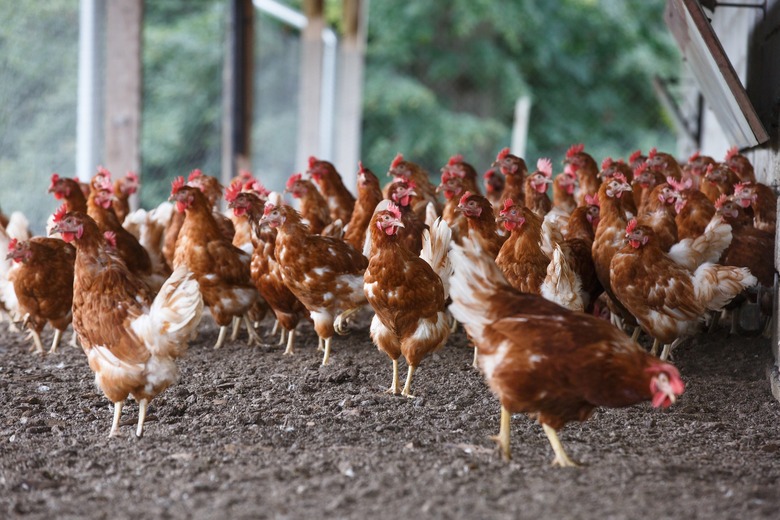Organic Industry Sues USDA For Stricter Egg Farming Regulations
The government is now facing some legal action after the Organic Trade Association (OTA) sued them for failing to enact adequate regulations on the treatment of poultry animals. Current regulations instruct organic egg farmers to provide chickens with year-round access to the outdoors to prevent overcrowding and abuse. However, the allegations in the lawsuit accuse that regulations fail to adequately define what the required "outdoor access" actually entails.
The OTA represents many companies in the organic food industry and is getting more assertive about its activism against chickens getting cooped up. As they are now, the regulations allow a back porch as an acceptable form of access to nature. The porch can be enclosed and covered, so long as the layers have access to fresh air.
This access, however, fails to solve the overcrowding problem that necessitated the regulation in the first place. Farmers can create side-by-side porched buildings and fill them to the brim with live chickens. One company in particular, Herbruck's Poultry Ranch, has been housing their chickens this way.
"It's kind of like your screened porch on your house," the president of Herbruck's, Greg Herbruck, told NPR. "When you go out there, you're outside. You're protected from the rain. In this case, we protect [the chickens] from disease and from predators." What they're not protected from, however, is chronic overcrowding. Herbruck's is home to 2.2 million chickens — and growing. "We've been double-digit growth for many years," Herbruck brags.
Many organic eggs in America are produced this way, with the quality of the chickens' stomping ground varying by company. The Cornucopia Institute, an organic activist group that advocates sustainable "family-scale" farming, scored popular brands on an "egg scorecard," revealing the quality of brands' animal care based in part on issues like crowding and outdoor access. The results are varied, and horrifically illustrate how different brands can interpret the same vague regulation in dramatically different ways.
The OTA isn't assaulting the government out of nowhere — the organic industry has been pushing for change for years. Conversation has been brewing in the government for quite some time regarding the ethics of big organic farmers' practices, and the U.S. Department of Agriculture developed a proposed revision of regulations under the Obama administration. But industry-friendly forces in Congress — such as the Republican chairman of the Senate Agriculture Committee, Pat Roberts, and the committee's senior Democrat, Debbie Stabenow, who has received campaign contributions from members of the Herbruck family — opposed the USDA's proposed changes. The bipartisan resistance led a group of senators in 2016 to call on the USDA to address their concerns before issuing the new regulations.
In May, the Trump administration further postponed implementation of the new regulations for a later date, suggesting that they might be withdrawn entirely, according to The Washington Post.
Facing these attempts at staving off progressive changes in the way organic egg producers treat their animals, the OTA is taking more aggressive and forceful action.
While the results of their efforts have yet to be determined, the lawsuit is certainly calling to light some questionable practices of large egg companies. If you care about the treatment of your poultry, eggs are probably one of those foods you should always buy organic.
